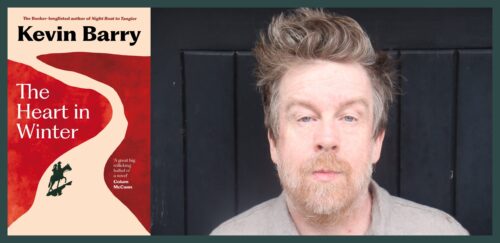Shortlist Spotlight: Kevin Barry
5th June, 2025
Our final Shortlist Spotlight is with Kevin Barry, author of The Heart in Winter.
Q: How do you feel about being shortlisted for the Walter Scott Prize for Historical Fiction? Do you consider yourself an historical novelist?
I work in different forms and different modes all the time so I suppose I define myself by whatever is on the desk at the minute. The Heart in Winter is my first truly historical novel (my novel Beatlebone was set in the 1970s, which almost qualifies) so it did present new challenges and new excitements. I had a blast working on it.
It’s a thrill to be shortlisted for the prize. Any literary award is only as good as the writers who have won it, and to look at the list of past winners of the Walter Scott will convince anyone of its quality.
Q: How did the people and times you write about in this novel first lodge in your imagination?
In the early summer of 1999, I was walking in the mountains in West Cork in Ireland when I almost fell into a hole in the ground. It was part of some eerie old abandoned copper mines, and I quickly learned that the mines had played out in the 1880s and all the Cork miners had migrated to Butte, Montana to the copper operations there. I thought, here’s a Western with Cork accents – I’m in. I went to Butte and did my research but it took another 23 years for the book’s main characters to emerge – it’s a slow game sometimes.
Q: What place does research have in your writing? When does the fiction take over from the facts?
I think it’s very important to come to a moment where you very firmly push your research to one side and start to write the story. Research can be too much fun and it can become a kind of procrastination, a way not to write. Truly masterful writers of historical fiction – say, Hilary Mantel – know how to let the research recede into the background and to the edges of the page.
Q: Can writing about the past help us to deal with the present and think about the future?
I don’t think it needs to justify itself by doing so. I believe in literature as a mode of transport, something that can lift us up from our present time and circumstance and set us down again somewhere entirely different. It offers all sorts of lessons in empathy in this way.

